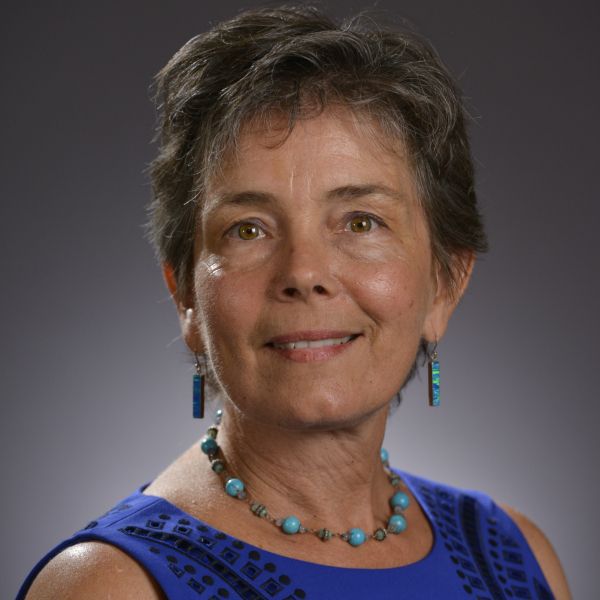Image

-
Karen Temple-Beamish
Science Teacher and Sustainability Coordinator, albuquerque academy
- CCC Fellow
As climate change intensifies in the Desert Southwest, growing food in a desert system will become more challenging. The goals of the Desert Oasis Teaching Garden (DOT) are to teach the community how to grow food in a hotter, drier land using fewer resources, increasing soil fertility, enhancing pollinator habitat, and integrating ancestral knowledge. The DOT garden will teach these goals through school curriculum, workshops, community workdays and events, and presentations. Karen's hope is to provide organic, campus-grown food for the school dining hall, campus farmer’s market, and local food banks. She hopes to empower students to teach agro-ecology, the impacts of climate change on food security and water resources, a water and land ethic, and to help the community implement the skills and knowledge gained into homes, business, schools and gardens. Currently, the school composts all food waste onsite. The DOT garden will use this compost to increase soil fertility and water holding capacity, which promotes carbon sequestration and uses less water for irrigation. The DOT garden will harvest rain water from the school’s science building and reduce water consumption using drip irrigation and water harvesting earth works. The DOT garden will satisfy a community need, as most area school gardens do not have the capacity to reach beyond their school grounds to teach the larger community. In addition, the focus on food production using less water, local resources, ancestral knowledge and low-tech solutions to resource conservation is not yet well-developed in the community.
Karen Temple-Beamish has taught environmental science and earth systems science at Albuquerque Academy for 17 years. In addition, Karen has mentored students in grades 6 through 12 in the school's environmental clubs and directed the school’s sustainability program. As Karen’s mastery for teaching environmental science has grown and matured, she has been recognized as a leader in her field. In 2010, Karen was selected to participate in the Japan Fulbright Teacher Exchange for Education in Sustainable Development. Most recently, Karen was awarded the 2013 New Mexico Finalist for the Presidential Award for Excellence in Science and Math Teaching. Karen has created sustainability projects including campus-wide food waste composting and materials recycling, energy audits, xeriscape gardens, water conservation, and sustainable food education programs. Her teaching focus is providing opportunities for student leadership and experiential learning. As one of the 2014 Community Climate Change Fellows, Karen hopes to share with the global community her experiences teaching her students how to be agents of change. Her hope for the future lies in the super smart kids that she teaches. Karen finds solace from the crazy-scary environmental destruction by walking in the foothills of the Sandia Mountains and digging in dirt of the gardens that she grows.